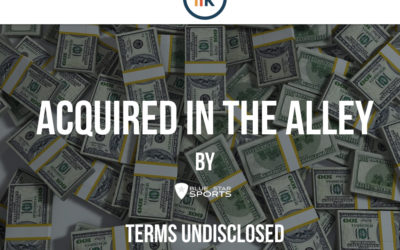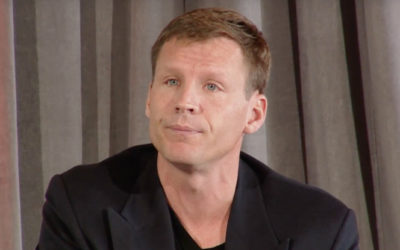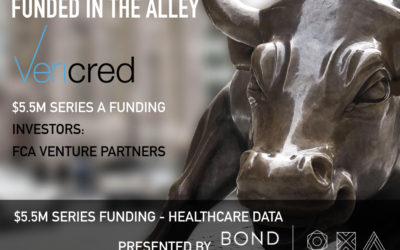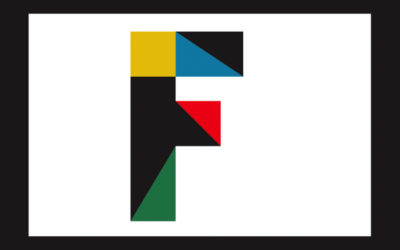Wefox acquires digital insurance carrier One
Wefox, the insurance platform that enables customers, insurance brokers and insurance providers to transact and manage insurance products digitally, has acquired One, a fully digital and newly launched insurance provider.
Although terms of the deal remain undisclosed, I understand the two companies already shared a number of investors, including Wefox investing in One itself, and that Wefox Group CEO and founder Julian Teicke had been advising One prior to launch.
The thinking of the merger, which sees One founder Stephan Ommerborn, formerly an executive at Zurich Insurance Group, remain as CEO of One, is that the digital-only insurance company can act as flagship business on the Wefox platform, integrating at a deeper level and therefore offering a better customer experience.
This in turn should help to drag the rest of the insurance industry into the digital age — which is Wefox’s long term vision.
An analogy I used in a call with Teicke is what Google has done over the years with its Nexus phones.
To that end, I’m told that One is setting the direction the insurance industry is heading in terms of data access.
Its procedures, both front and back office, are fully digital, resulting in a claimed three minutes it takes for customers to pick and purchase an insurance product.
More importantly, the digital (and hopefully improved) customer experience extends to claims-management too.
Data is also handled in real-time, allowing customers to check their current insurance status instantly.
Instead, because of the data that is going through the platform every day, such as how quickly claims are settled, each insurance product is given an algorithmically generated customer satisfaction score, which, like any another insurance product offered through Wefox, One is also subject to.
“Fintech Can Be a Threat Only If Google or WhatsApp Enter The Space”
Even though the start-up space is considered as a risky sector, the Bank of India has recently launched several schemes to fund bright young minds with bright new ideas as Modi Government pushes for growth of start-up culture in India.
Elaborating on this, G. Padmanabhan, Chairman of the Bank of India, spoke to Entrepreneur magazine about SMEs, start-up funding and fintech space at the L N Welingkar Institute of Management Development and Research’s convocation ceremony.
For SME and startup financing, what initiatives have been taken by Bank of India?
SMEs have always been a priority sector which was defined long ago and the flow of finance to this sector was closely monitored by the government and the RBI.
I am yet to see too much of banks getting into fintech space but fintech start-ups getting into banking space is kind of disruptive.
One thing that is getting recognized today is the payments and peer-to-peer lending which is happening all over the world.
It might also happen that they collaborate with each other and come out with better solutions.
In India, the fintech space is very nascent.
And, I really don’t think fintech start-ups can be a threat to the banks because the kind of money access the banks have and activities they are allowed to do as compared to fintech start-ups.
There could be issues if Google or WhatsApp or such companies come into the fintech space, they could be a threat to the banks.
This NYC SportsTech Startup Was Just Acquired
BREAKING NEWS: Krossover, the sports video analysis and statistics company was just acquired by Dallas-based Blue Star Sports, a sports management firm.
The terms of the acquisition were not disclosed.
Investors in the company include Stephen Ross, NBA great David Robinson, Dan Gilbert, Active Angels, Baltimore Sngels, Jarcap, Ken Fox, Larry Stone, Sanjay Chadda,, SierraMaya360, and Greg Cangialosi.
According to the companies, Kulkarni will remain to run Krossover within Blue Star, leveraging its portfolio of sports-tech focused products for youth sports.
“Over the past seven years, it’s truly been gratifying to see coaches, athletes and teams play smarter and gain a better understanding of their sport through our platform,” said Kulkarni on the acquisition.
“It’s an exciting opportunity to join the Blue Star Sports family and accelerate Krossover’s growth in the greater sport community.
We’ll now be able to provide our current and future customers a wide variety of technology solutions for their teams, all directly complementing the products Krossover already provides.” Focused on youth sports management, Blue Star has built a suite of products that converge at the intersection of sports and technology.
Blue Star Sports is with you from your very first rec league all the way to the high school, collegiate and professional ranks.
Our technology is used by tens of millions of people, all over planet.
The depth and breadth of the product we now offer is unrivaled by anyone in the industry.”
Job losses, new start-ups bring changes in Tulsa’s key industry into focus
Newfield Exploration’s Tulsa office hasn’t quite been closed a year, but a handful of the approximately 200 employees who lost their jobs have started to drill their own wells in an Oklahoma basin.
Corterra has 10 full-time employees and about 10 contractors, some of whom Mitchell would like to make full-time.
“I thought there was a lot of talent here in Tulsa,” said Mitchell.
The city’s energy industry suffered, particularly exploration and production companies like Newfield.
Employment experts and industry observers say that most of the jobs Tulsa lost aren’t coming back.
“Our students are going to work at energy companies, not just upstream oil and gas, so that has helped us out tremendously.” No going back “Over the decades, when companies leave Tulsa, they don’t come back,” said Seng.
Many mid-sized exploration and production companies started out as startups.
One example: “Sourcing water and water disposal,” she said.
They understand that everything we do has to make money.” Like many energy start-ups, Corterra is also private equity backed, being financed by White Deer Energy, a Texas-based funding group.
Here’s what I think the returns could be,’ I modeled that using the existing production taxes,” said Mitchell.
4 New Ways to Self-Fund Your Startup
Self-funding, or bootstrapping a startup company, means different things to different people.
To the newer entrepreneur who is lucky enough to have some personal assets, it may mean tapping into savings or a retirement account to come up with $50,000 to $100,000 to get things rolling.
To others still – those who represent the vast majority of entrepreneurs – it means living on Ramen noodles and peanut butter sandwiches, calling in favors from friends who will work for free, and squirreling away a few hundred dollars at a time to keep the lights on.
You may be creating the next Google, but if you don’t have collateral and a high FICO, the bank doesn’t care – and it’s just not profitable for banks to make loans to small businesses any more.
According to Lackland, “Traditionally, tech startups had to sell equity to get growth capital as a result of having no hard assets (like equipment or inventory) for a bank to lend against.
RBF fits the needs of tech entrepreneurs because it is a flexible instrument, doesn’t require hard assets, and combines many of the best aspects of debt and equity, since it’s non-dilutive yet aligns the interests of the entrepreneur and investor toward growth.” Targeted loans: What makes you different?
Kaleigh Wiese, co-founder of Garment Exchange, a peer-to-peer rental marketplace for women’s clothing, launched in March of this year.
“To fund Garment Exchange, we have of course decreased our personal spending, but have looked for innovative side projects that would bring in residual income as we put our day-job income into the business.
Moving quickly and thinking innovatively about bringing in side income has been such a success for us.” More startups, less money During the dotcom boom of the 1990s, startups were well known for landing multi-million dollar venture capital deals on the strength of a business plan written on a cocktail napkin, burning through those millions in the first few months, then going back for more – and getting it.
The self-funded or lightly-funded startup is the foundation of the next wave of startup innovation – and lack of funds is no longer a reason not to launch.
Sindeo shutdown shows why mortgage industry is hard to disrupt
Sindeo shutdown shows why mortgage industry is hard to disrupt.
Mortgage lending has proven to be a tough industry for new companies to make waves in, and the sudden shutdown last week of San Francisco mortgage startup Sindeo helps show why.
Sindeo was a mortgage broker, which means it originated loans for others, but did not fund them itself.
Mortgage-tech companies are attempting to save people time and money by letting them shop and apply online and either upload their documentation or give the mortgage company permission to pull it directly from employers, financial institutions and the IRS.
In the end, it proved to be too much for Sindeo, and it will prove too much for the other mortgage disruptors.” To compete, a company needs lending, technology, regulatory and marketing infrastructure, Hebron said.
Quicken makes loans directly to borrowers, traditionally over the phone.
He said Rocket customers are closing loans in as few as nine days for refis and 16 days for purchase mortgages.
CB Insights identified 25 “mortgage startups transforming the mortgage industry.” Unlike Sindeo, which was purely a broker, some are mortgage banks that initially fund the loans they make, although they quickly sell most or all of them.
They include Lenda and Clara Lending (both in San Francisco), and Better Mortgage (New York).
“As a broker, you can’t control the price.
Binary Capital reportedly delays closing new fund amid controversy
Binary Capital reportedly delays closing new fund amid controversy.
In the wake of allegations of sexual harassment and the resignation of Binary Capital co-founder Justin Caldbeck, the firm has delayed closing its second fund, Axios reports.
Caldbeck issued a statement saying he would take an indefinite leave of absence after multiple women in the tech industry alleged they faced unwanted and inappropriate advances from him.
The Information first reported the stories, with Caldbeck putting out the statement late Friday.
It’s not clear how much information LPs in Binary Capital’s upcoming fund had before the stories went out yesterday.
Given the gravity of the situation, as well as the sexist behavior happening at Uber that led to CEO Travis Kalanick resignation, LPs may end up rethinking the way they are deploying their capital.
Axios notes that it’s not clear how much capital was committed to its upcoming fund.
Binary capital closed its most-recent fund — which amounted to $175 million — in August last year.
A representative from Binary Capital declined to comment.
Featured Image: YouTube
We’re #5: Pa. start-ups are on the rise
Entrepreneurship is on the rise in Pennsylvania, cites a new report from Gust, a popular funding platform for the sourcing and management of early-stage investments.
Hardly on their radar screen in 2015, Pennsylvania rose to fifth place on Gust’s top 10 list of start-up fund seekers in the second half of 2016.
Still, local entrepreneurs caution that it’s not time to start popping the champagne corks just yet.
For starters, a perusal of the top 10 list shows a huge gap between the front-running states — California and New York — and the rest of the pack.
Gust helped fund more than 1,800 start-ups globally last year, but lists for free (and doesn’t curate) tens of thousands of profiles on its website.
With that kind of competition, it’s easy to get lost in the crowd.
But so far “no takers.” Hanuschak also is pitching the product on AngelList, the 800-pound gorilla of crowdfunding portals with more than three million companies in its database.
You have to make your goal to keep it or everyone gets their money back.” Working out of NextFab, he’s “now considering other options.” Gust and AngelList are sometimes lumped in the same “crowdfunding” camp with the far more visible Kickstarter and Indiegogo, yet they are really different beasts, explained Bill Glaab, CEO of the Philadelphia-based fair trade soap maker Hand In Hand Soap LLC, who recently scrubbed away its profile posting from the Gust site.
Kickstarter, Indiegogo, and its ilk “figured out how to get around those rules by couching small investments as donations or purchases of products — so you’re getting something back for advancing them money.” Just last week, the SEC issued an updated investor bulletin that touted a bar-lowering “new investing opportunity in the form of securities-based crowdfunding.” While still underlining the high-risk gambles involved with this type of equity investing (actually available since 2016 but newly inflation-adjusted and now better explained), the SEC’s rule changes now allow individuals with an annual income or net worth less than $107,000 to annually invest “up to the greater of either $2,200 or 5 percent of the lesser of your annual income or net worth” through one of the 21 SEC-registered funding portals (including the Indiegogo-associated DreamFunded Marketplace), which all belong to the Financial Industry Regulatory Authority.
Those individuals earning more than $107,000 can invest up to 10 percent of their income.
Africa is now the world’s testing ground for commercial drones
Africa is now the world’s testing ground for commercial drones.
From here, Zipline, a San Francisco-based robotics company, delivers blood by drone to almost half of all Rwanda’s blood transfusion centers.
An order has come in for a hospital about two hours away by car.
In contrast, African countries like Rwanda, Cameroon, Malawi, South Africa, and Kenya are increasingly open to the use of drones in tourism, health services, and e-commerce.
Kenya recently said it would allow the commercial use of drones.
During the rainy season, many of Rwanda’s roads are wiped out and getting health services in an emergency can take hours because of the country’s hilly terrain.
By 2050, as much as a quarter of the world’s population will be living in Africa, more than half of them in cities.
Elong says the company has been getting more requests for their drone services in e-commerce and healthcare.
Zipline and the government won’t disclose the costs of the service.
The only time cameras are installed on the drones is during test flights to map out routes.
Blue Apron Leads Busy Week In IPOs That Look To Raise $1.1 Billion
Blue Apron Leads Busy Week In IPOs That Look To Raise $1.1 Billion.
APRN) will headline a busy week for initial public offerings, with nine companies looking to raise a total of $1.1 billion in proceeds.
Blue Apron plans to raise $480 million by offering 30 million shares at a price range of $15 to $17, according to the IPO prospectus.
The initial public offering comes as Amazon (AMZN) last week announced a deal to acquire Whole Foods Market (WFM).
Blue Apron is set to price late Tuesday and begin trading Wednesday on the NYSE under the ticker APRN.
Five of the 9 IPOs are biopharmaceutical companies, with the largest being Akcea Therapeutics (AKCA).
It plans to raise $125 million by offering 9.6 million shares at a price range of $12 to $14, trading Friday under the ticker AKCA.
Dova Pharmaceuticals (DOVA) looks to raise $65 million, offering 4.1 million shares in a range of 15 to 17.
Dova is scheduled to trade Wednesday on the Nasdaq under the ticker DOVA.
It’s set to trade Thursday on the Nasdaq under the ticker ALRN.
Apple Music Seeks To Rain On Spotify’s Planned IPO Parade
Apple Music Seeks To Rain On Spotify’s Planned IPO Parade.
As streaming music leader Spotify prepares for an initial public offering, Apple’s (AAPL) rival service, Apple Music, is ramping up the competitive pressure.
Autoplay: On | OffThe Silicon Valley giant’s latest moves to bulk up Apple Music should sound like “battle drums” to Spotify, RBC Capital Markets analyst Amit Daryanani said in a note to clients Thursday.
Apple is currently a distant No.
For instance, Apple began offering a lower price for subscribers who pay on an annual basis — at $99, or $8.25 a month — instead of its standard, pay-as-you-go plan of $9.99 a month.
Apple currently pays the music companies 58% of revenue from streaming, compared with 52% for Spotify.
They include the ability to share playlists and songs with friends and allowing users to see what their friends are listening to.
IBD’S TAKE: Apple stock has an IBD Composite Rating of 80, meaning it has outperformed 80% of stocks in key metrics over the past 12 months.
Spotify is looking to go public either in the fourth quarter this year or in early 2018, according to various media reports.
Daryanani rates Apple stock as outperform with a price target of 168.
This NYC Startup Just Raised $5.5M to Enable Innovation in Healthcare
This NYC Startup Just Raised $5.5M to Enable Innovation in Healthcare.
Have any questions about what Bond Collective can offer your company?
We raised a Series A round from FCA Venture Partners for $5.5M.
Vericred is a leading healthcare data services company which partners with carriers across the nation to deliver structured health insurance data to insurtech platforms that are transforming today’s healthcare industry.
Instead, we are enabling innovation in healthcare by doing the dirty work of bringing health insurance and employee benefit data together, making it useful so that others can build really cool applications, solving different problems for different constituencies, without having to try to build and maintain the data on their own.
We are a B2B, data as a service (DaaS) business.
We identified and reached out to roughly 100 VCs that appeared to be a fit based on domain, stage, check size and location.
Ultimately, our two biggest challenges were: 1) finding that one line that describes Vericred (The Sabre of Health and Benefits) 2) finding a VC that understands both healthcare and data FCA shares our passion for enabling innovation by making the data easy.
We are growing the team across data, engineering, sales and operations to deliver the products (data and data services) our customers need today and will want next year.
Have any questions about what Bond Collective can offer your company?
Satellogic raises $27M for affordable, high-resolution imaging satellites
Satellogic raises $27M for affordable, high-resolution imaging satellites.
Space tech company Satellogic has raised $27 million in a Series B round led by Chinese internet giant Tencent, and with participation by CrunchFund (disclosure: co-founded by TechCrunch founder Michael Arrington).
The company also launches its sixth micro-satellite into orbit on June 15, aboard a Long March-4B rocket that took off from Jiuquan Satellite Launch Center.
What Satellogic offers that’s unique is affordable, high-resolution imaging in a micro-satellite platform, with the ability to capture photo data of the Earth at 1 meter resolution.
By comparison, Planet’s constellations of 142 satellites offers imagery at resolutions ranging from less than 1 meter to up to five meters.
Satellogic’s products also carry hyperspectral imaging, with 30 meter spatial resolution from orbit, something the company says is “unmatched” when compared to any currently orbiting satellites serving commercial or scientific missions.
Hyperspectral imaging captures information from across the electromagnetic spectrum, which can help with prospecting for mineral and oil deposits, for example.
It can also help with monitoring forestry, weather forecasting and climate change monitoring.
Founded in 2010, Satellogic raised a Series A round in 2015, also led by Tencent.
Smallsats or CubeSats are a growing business, and should only become more interesting to commercial clients as costs from launch providers continue to drive down thanks to growing global competition.
First ever Inside/Outside Innovation Summit in Lincoln mixed startups with corporate innovators
The event showcased a diverse slate of speakers, a startup showcase floor, networking, and a $100,000 startup pitch competition.
“We gave the ties and the unties, the tucked and the untucked an opportunity to connect and learn from each other.” The conference follows a recent trend in the corporate world toward innovation departments and forming relationships with the startup world.
The theme of the event was matching startups with corporate innovators to find win/win partnerships.
“Many took full advantage of the matchmaking environment and sought out startups to meet with.” Speakers from both corporate and startup backgrounds spoke from two stages addressing a wide range of topics including funding, team structure, matchmaking, creating innovation environments, and more.
“We had startups from Australia, Ireland, San Francisco, Philadelphia, Pitssburg, Austin, KC, St. Louis, Omaha, Lincoln, and more.” “The diverse group of startups meet potential customers and investors,” Ardinger continued.
“There were also lots of startup to startup connections that are only made when you put that density together for a particular moment in time.” The summit was capped off by a $100,000 startup pitch competition sponsored by Nelnet.
“Nelnet put up $100k for the event and asked us to go out and find some great candidates, we chose six and Nelnet chose the other four from the startup showcase,” said Ardinger.
“It was a hard-fought deliberation because of the quality of talent that was on the stage that day.” In the end, Lincoln-based startup Company Cam, a software solution that helps businesses manage field work with smart photos, won the prize.
“They have slowly and organically grown the business into something very interesting,” said Ardinger.
“They’ve been heads down building without actively tracking down money.
Razer makes virtual currency push with $20M investment in Asian payment firm
Razer has invested close to $20 million into Malaysia-based online payment firm MOL Global as part of a push to establish its virtual currency for gamers in Asia.
Gaming company Razer, which made its name selling high-end peripherals and gaming laptops, introduced its ‘zVault’ digital wallet and ‘zGold’ rewards program for its gamers back in March.
This week’s investment deal itself represents a move to further its reach among gamers in Southeast Asia, a fast-growing internet market where Razer predicts overall game spending will reach $2.2 billion in 2017.
MOL, which delisted from the Nasdaq last year following a bumpy two-year spell as a public company, is strongest in Southeast Asia.
In addition to its online payment service, it has an offline network through relationships with retailers like 7-Eleven — which shares the same parent — to enable people without credit (who represent the majority in many countries) to buy online points over the counter.
The deal will see MOL’s MOLPoints rebranded to Gold-MOLPoints in an effort to tie it into Razer’s brand, with incentives given to MOL users who top-up their account.
Razer said that its network combined with that of MOL will allow users to buy its points at over a million online and retail stores across Southeast Asia, New Zealand and Australia.
Razer CEO Min-Liang Tan told TechCrunch that the deal makes zGold “one of the biggest virtual credit systems in the world and biggest in Southeast Asia.” The deal with MOL is the latest in a string of strategic deals from Razer, which recently inked a partnership mobile carrier Three and raised upwards of $50 million from Three backer Li Ka-shing’s Horizons Ventures fund.
Back in January, Razer acquired Nextbit, the company behind the promising-but-ultimately unsuccessful Robin smartphone.
Added to that, Razer launched a $30 million investment fund last year.
What Everyone’s Getting Wrong About Reddit
Three years later, Reddit is an entirely different company.
No longer the scrappy bulletin-board site, it has grown into the fourth-most-popular website in the entire United States.
Now Reddit appears to be raising a new venture-capital round, which could total around $150 million, giving the company a potential valuation of $1.7 billion, as reported last week by Bloomberg.
Since then, Reddit has been in a state of rapid change.
According to the site’s co-founder, Alexis Ohanian, internal metrics show that 100 million individuals in the United States view Reddit each month.
Even as major corporations such as Coca-Cola, Duracell, and Toyota sign on to advertise on Reddit, the site’s reputation as a troll haven full of fringe communities is something Huffman works on internally every day.
And for years it remained within Condé Nast, a strange internet property the major media company tucked into Wired magazine’s San Francisco office.
Consider that Vice magazine, which just got a fresh investment of $450 million, is valued at $5.7 billion.
Once Reddit figures out how to more broadly and profitably sell those eyeballs to advertisers–something it has well in the works–the company could be worth a lot more.
In reporting the news of the likely forthcoming investment, Bloomberg wrote: “Reddit is one of the few relics of the mid-2000s internet that has not only survived but thrived in recent years.”
Q&A: What you need to know about AIB’s IPO
The initial public offering (IPO) of AIB is an important milestone for the State as it seeks to recover the €20.8 billion taxpayers have pumped into the bank during the financial crisis to keep the lender afloat as it struggled with spiralling bad loans.
By selling an initial 28.8 per cent stake in AIB to stock market investors on Friday for a total of €3.4 billion, the State has now recovered a total of about €10.3 billion in cash from the bank.
Ordinary investors who put in an offer to buy up to €50,000 worth of stock will receive all that they sought and 53 per cent for amounts above that.
However, it would be important to also have some short-term orientated investors, such as hedge funds, on board as well, as they would be more inclined to actively trade the stock, ensuring that there’s enough supply and demand to create a proper market.
But the pricing of IPOs are always a balancing act.
It’s important to note that the State continues to hold a 71 per cent stake in the bank and will need a healthy market for the stock over the coming years so it can continue to sell down its holding.
If the stock had fallen, it would have left a sour taste in the mouths of investors, who the Government will be reliant on in future to buy further shares.
If I buy shares now, can I expect the stock to continue to rise?
The €4.70 share price that AIB rose to – valuing the bank at €12.8 billion – is in line with a target that was recently set by US investment bank Keefe Bruyette & Woods for the stock and also around the level at which analysts in general believe that its net assets will be worth at the end of this year.
However, it is inevitable over the coming years that executives in the country’s banks will see long-term share bonus plans put back in place, as large investors like to see management with “skin in the game”.
Term Sheet — Thursday, June 22
Every sector of the economy is going through a digital-driven shift of some sort, and we’ve chronicled that, from Marriott and Citigroup and BMW to L’Oreal and Microsoft.
Most Fortune 500 incumbents follow a pattern: Stage 1: Dismiss the disruptive factors that could lead to their demise.
Stage 2: Wait for their stock price to start slipping.
Stage 3: Tout their internal innovation and bristle at the suggestion that they’re behind.
500 Startups, the accelerator program and venture fund that bills itself as the most active startup investor in the world, has surveyed 100 corporate innovation programs, which range from pilots and partnerships to direct investments and acquisitions.
— most of them aren’t very successful.
A full 81% of those surveyed say that fewer than 25% of their startup pilots have resulted in commercial deals.
(That blame suggests that the corporations have more to gain from these relationships than the startups do.)
500 Startups found that corporations aren’t working with enough startups — only 9% do more than 50 startup pilots a year — which isn’t enough to yield a meaningful number of successful deals.
WHY should you leak information about M&A deals to Term Sheet?


















